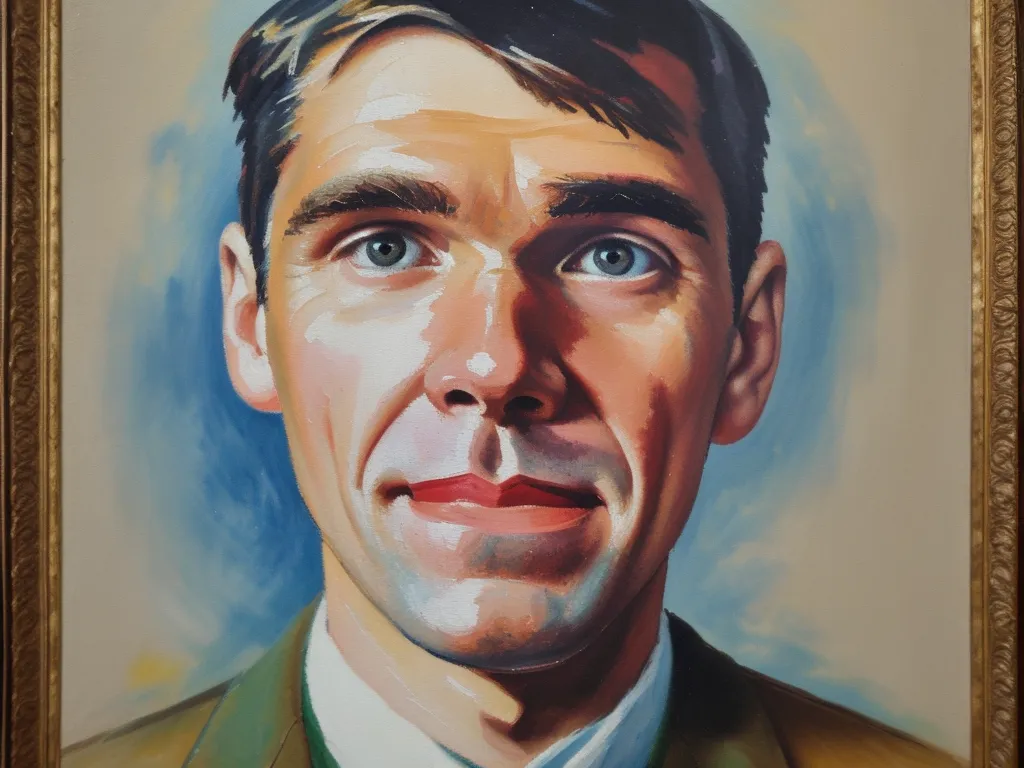Portrait of Alan Turing, Impressionism, Fresco Painting
1. Sir Alan Turing (23 June 1912 – 7 June 1954) was a British mathematician, computer scientist, logician, and cryptanalyst who was highly influential in the development of theoretical computer science and artificial intelligence.
- During World War II, he helped decipher coded messages encrypted by Nazi Germany’s Enigma machine. His contributions significantly shortened the conflict and saved countless lives.
- In 1936, Turing published “On Computable Numbers,” a paper which introduced the concept of a “universal machine” – the precursor to modern computers. This concept laid the foundation for theoretical computer science.
He was also instrumental in developing the first designs for a stored-program computer – a type of digital computer where both data and program instructions are kept and manipulated in the same memory.
Turing received several awards posthumously, including the Alan Turing Award (named after him), which is considered one of the most prestigious distinctions in the field of computing.
In 2009, Queen Elizabeth II granted him a posthumous royal pardon for his homosexuality, which had led to his conviction and punishment by chemical castration under British law at the time.
Turing is also credited with anticipating the concept of artificial intelligence, as he proposed what is now known as the “Turing test” – a test that measures a machine’s ability to exhibit human-like behavior.
Text model: dolphin-mistral
Image model: RealisticVision

The Neural Navigator is a creative mind behind the lens of AI-generated images.
The Neural Navigator is always pushing the limits of what’s possible in this exciting new frontier of digital creativity. Whether it’s surreal landscapes, abstract patterns, or striking portraits, each image is a testament to the endless potential of AI-driven art.
Follow The Neural Navigator for a daily dose of innovative and visually stunning AI-generated imagery.




